Phonics skills development Alphabet Worksheets for Ages 3-4
5 filtered results
-
From - To
Enhance your child's phonics skills with our Alphabet Worksheets tailored for ages 3-4. These engaging, high-quality printables are designed to make learning fun while aiding early literacy development. Each worksheet focuses on letter recognition, sound matching, and essential phonemic awareness activities. Ideal for at-home practice or supplemental preschool work, our resources help children grasp the fundamentals of the alphabet in an interactive way. Perfect for young learners, these worksheets foster essential skills for reading success, ensuring a strong foundation in phonics from an early age. Start your child's educational journey with these expertly crafted tools today.
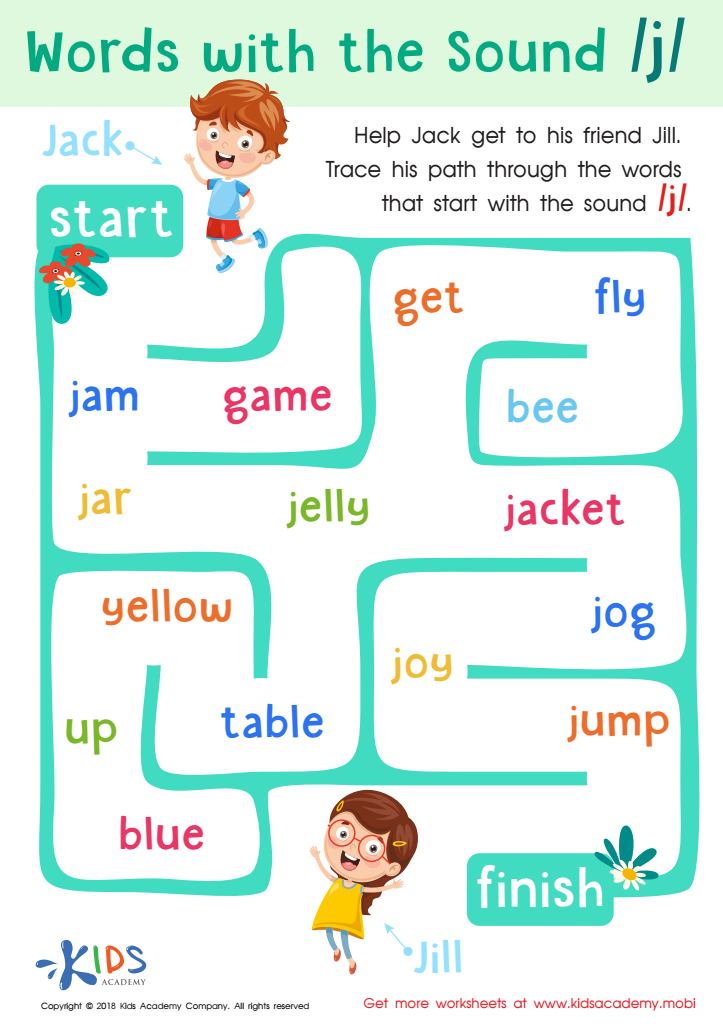

Words with sound j Reading Worksheet
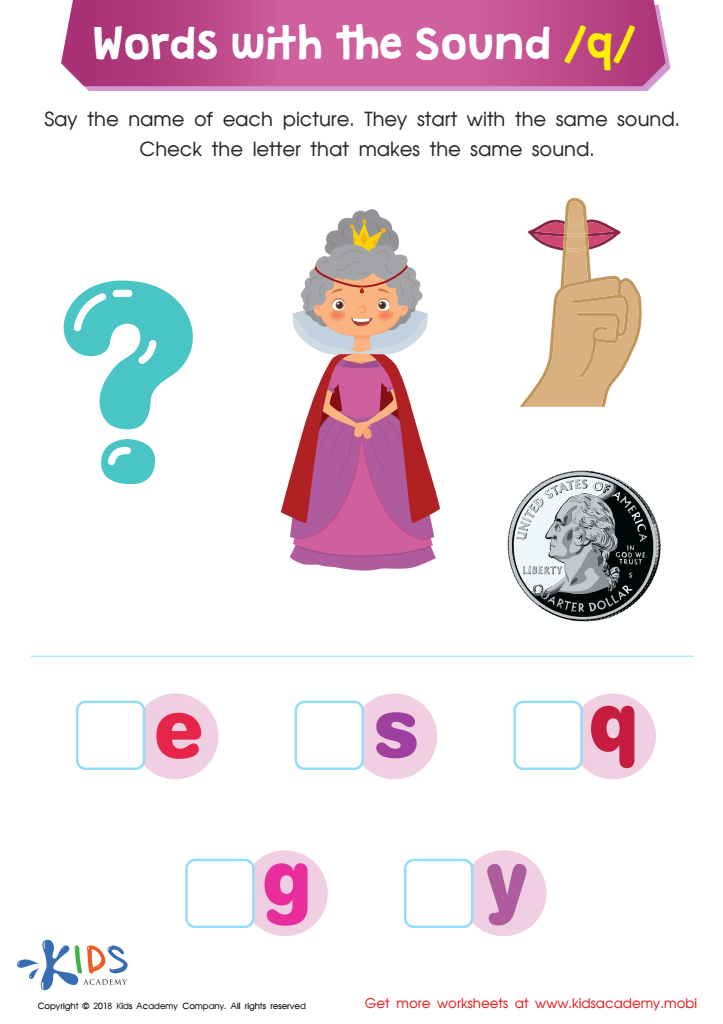

Words with Sound Q Reading Worksheet
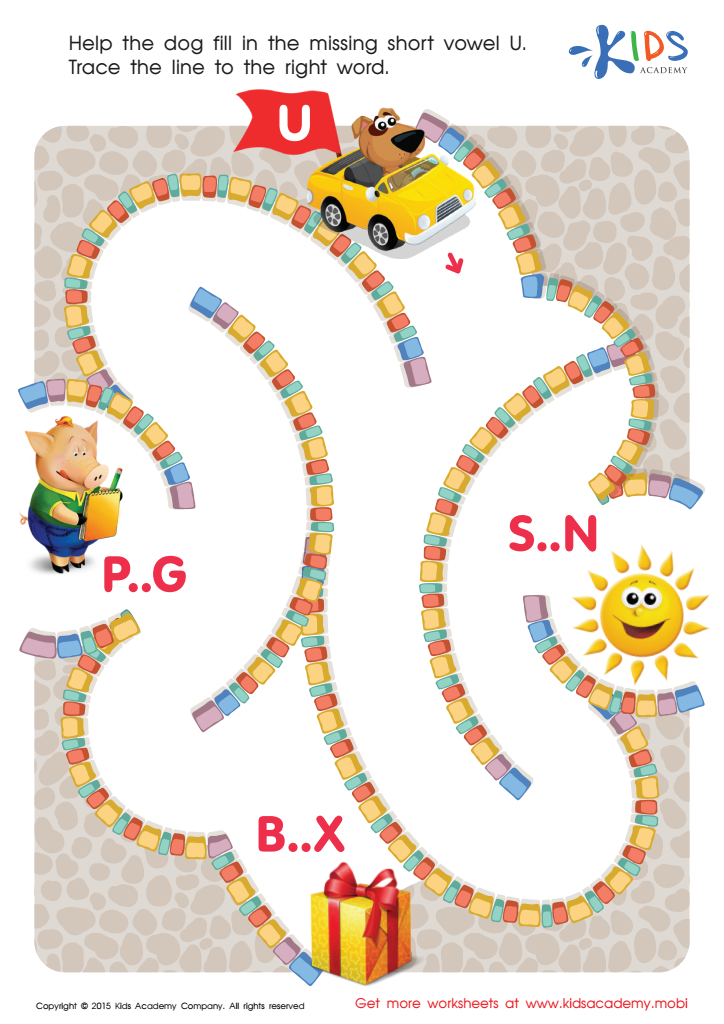

Short Vowel Sound U Worksheet
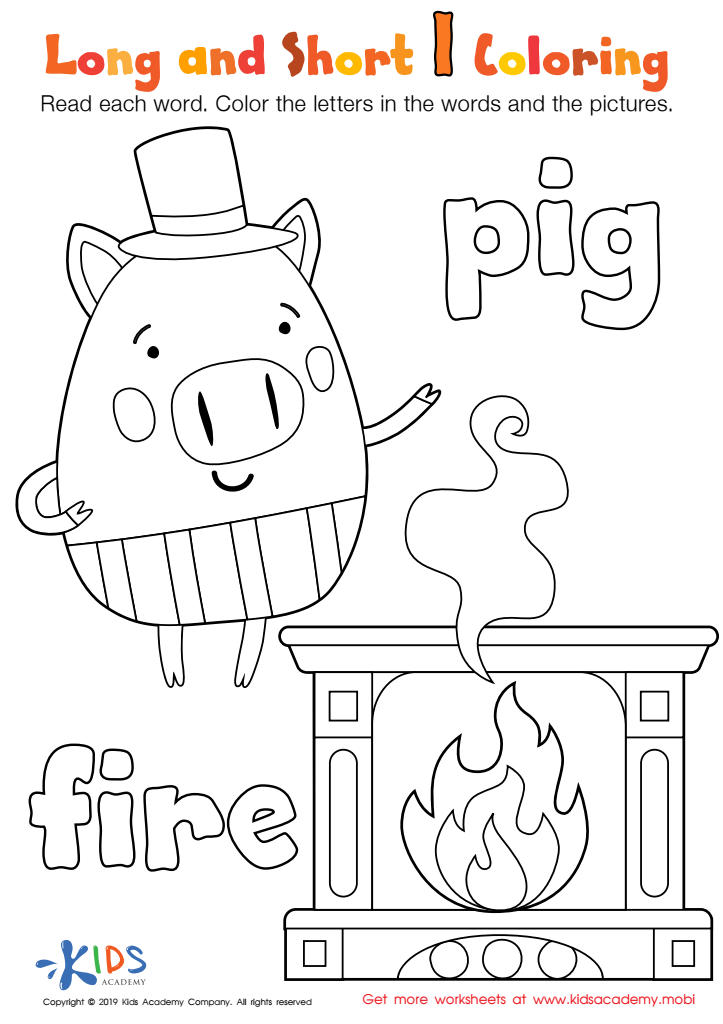

Long and Short I Worksheet
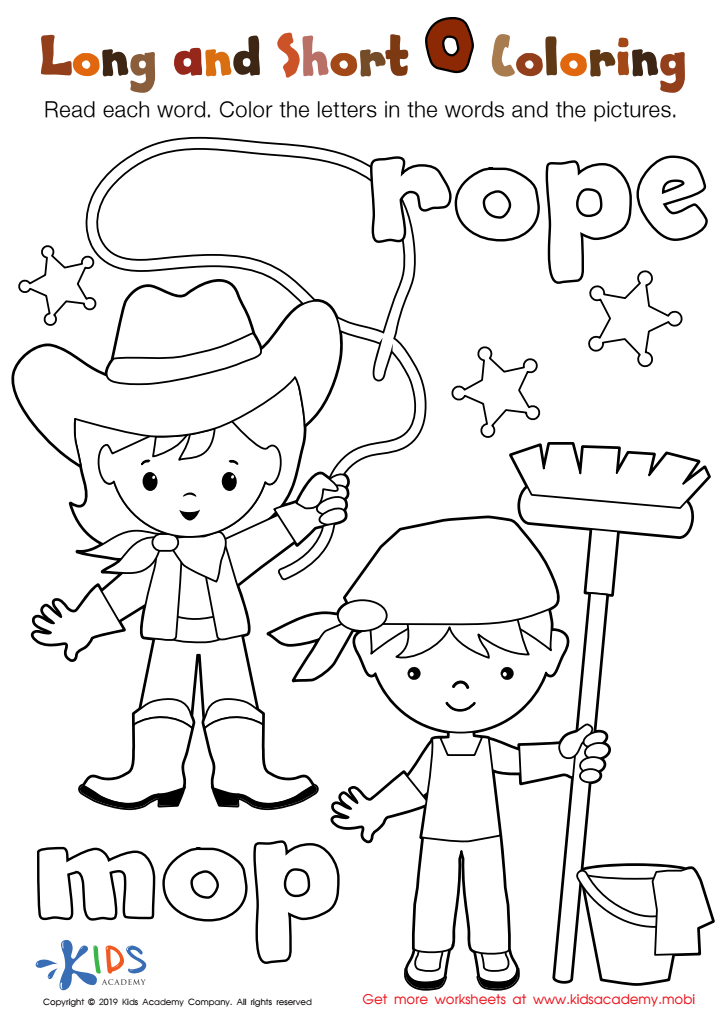

Long and Short O Worksheet
Phonics skills development is critical for young children, particularly for those aged 3-4, as it forms the foundation of their reading and writing abilities. Phonics teaches children the relationship between letters and sounds, enabling them to decode words and understand language structures. At this formative age, introducing alphabet awareness and phonics helps to ignite an interest in reading, which in turn supports cognitive development and language acquisition.
Parents and teachers play a vital role in fostering these skills. Early exposure to the alphabet and the sounds each letter makes can help children begin to recognize patterns in words, promoting reading fluency and comprehension as they grow older. This early literacy preparation also contributes to a child’s overall academic success; it is widely acknowledged that children who start school with strong phonics skills tend to outperform their peers in reading and writing throughout their academic journey.
Additionally, engaging in phonics-related activities can strengthen the parent-child or teacher-student bond. Shared reading time, alphabet games, and interactive storytelling not only make learning fun but also create positive associations with education. By prioritizing phonics skills development, adults equip young learners with the tools they need to become confident, capable readers, setting the stage for lifelong learning and curiosity.
 Assign to My Students
Assign to My Students














